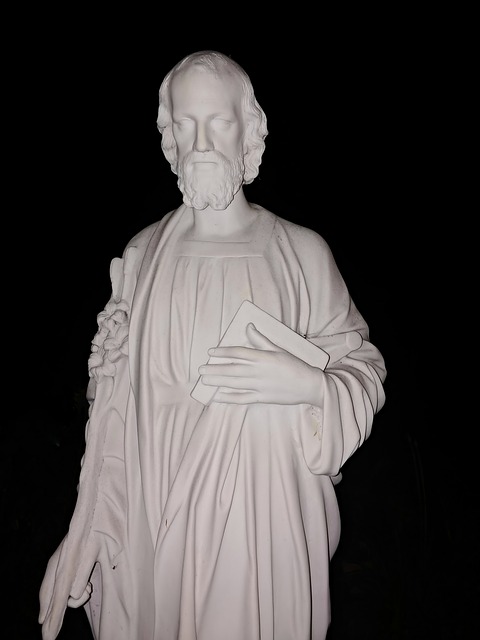 LR writes: "I heard that burying a statue of St. Joseph upside down in yard to sell a house is superstitious. What about putting St. Benedict medals in corners of a home for protection and blessing. Is this superstitious?"
LR writes: "I heard that burying a statue of St. Joseph upside down in yard to sell a house is superstitious. What about putting St. Benedict medals in corners of a home for protection and blessing. Is this superstitious?"In order to answer this question, it’s important to understand what a superstition is. The Catechism of the Catholic Church explains that superstition violates the first commandment which forbids the worship of false gods.
“Superstition is the deviation of religious feeling and of the practices this feeling imposes. It can even affect the worship we offer the true God, e.g., when one attributes an importance in some way magical to certain practices otherwise lawful or necessary. To attribute the efficacy of prayers or of sacramental signs to their mere external performance, apart from the interior dispositions that they demand, is to fall into superstition" (No. 2111).
In other words, if you pray to St. Joseph and ask for his help in selling your home, this is not a superstition because you are performing a religious act (in this case, saying a prayer) with the correct interior disposition (faith in the intercession of St. Joseph).
However, when you just put a statue of him upside down in the yard as a kind of "good luck charm", you are guilty of superstition because you are attributing the "power" not to St. Joseph but to the physical act of putting a statue upside down in the yard.
The Rev. Donald H. Calloway, MIC, refers to this practice as a kind of “spiritual bribery.” “Whatever you do, never bury a statue of St. Joseph,” Father Calloway writes in his book, Consecration to St. Joseph. “People sometimes do this bizarre practice as a form of spiritual bribery, promising to turn St. Joseph statue right side up only if the house is sold. Such a practice is akin to treating a statue of St. Joseph as a talisman or good luck charm. St. Joseph is your spiritual father, not a trinket. There’s no need to bury a statue of him.”
Just for the record, there are some sources that attribute the burying of a statue of St. Joseph to Saint Teresa of Avila, who invoked St. Joseph’s intercession in order to acquire land for new convents. Saint Teresa never buried statues of St. Joseph. She encouraged her companions to bury their St. Joseph medals as a sign that they belonged to God and St. Joseph.
If you need to sell your home, turn to St. Joseph in prayer and ask for his assistance. As Father Calloway writes, “Talk to him; he hears you.”
The same thing goes for the St. Benedict Medals. I have a St. Benedict cross hanging just inside my front door, not because I believe the medal has any power, but because it reminds me to invoke St. Benedict for protection.
The Most Reverend Donald W. Montrose, Bishop of Stockton, California, explained how superstition manifests itself in our times in his pastoral letter, Spiritual Warfare: The Occult has Demonic Influence.
“It doesn’t matter if there are statues, holy water, crucifixes, prayers to Jesus, Mary and the saints, if there is any superstitious practice it is evil. . . . . We must be careful not to use religious medals or statues in a superstitious way. No medal, no statue, nor religious article has any power or luck connected with it. A medal, statue or candle is only a sign of our prayer asking the saint to intercede with God for us. All worship is given to God and to Him alone.”
© All Rights Reserved, Living His Life Abundantly®/Women of Grace® http://www.womenofgrace.com
Women of Grace® has compiled a library of over 1400 articles on New Age and occult related material and has been offering them to the public for more than a decade – at no charge! If you appreciate our research, please prayerfully consider making a donation to support this vital work! Click here to donate!
